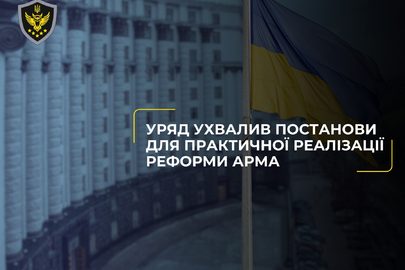Recently, questions have been raised about the interaction between two procedures: sanctions imposed on persons involved in aggression against Ukraine and the execution of a court order to manage seized assets in criminal proceedings. In particular, representatives of the company whose assets were seized in the framework of criminal proceedings and transferred to the management of the ARMA appealed to the Antimonopoly Committee of Ukraine (AMCU) to reject the concentration or significantly tighten the requirements for the potential manager, which, in their opinion, “will help protect the packaged water market in Ukraine from monopolization and protect the interests of the state”.
It is worth noting that the sanction mechanism provided for by the Law of Ukraine “On Sanctions” has its own specifics and is not identical to an arrest in criminal proceedings. Although both instruments may be applied to the same person, their objectives and legal consequences differ.
Therefore, the sanction mechanism cannot invalidate the procedural measures of criminal proceedings defined by the CPC of Ukraine.
At the same time, a sanction is not a form of criminal liability, so it does not limit the possibility of further criminal prosecution of the persons against whom it is imposed. On the contrary, sanctions can serve as an additional tool to combat illegal activities and ensure the enforcement of court decisions.
In addition, the provisions of the Law of Ukraine “On Sanctions” imply that the application of sanctions does not cancel the state's obligation to conduct criminal prosecution and bring the perpetrators to justice.
Under such circumstances, the use of interim relief in sanctions cases does not prevent the ARMA from exercising its powers to sell and manage seized assets in criminal proceedings.
Sanctions and criminal proceedings are important tools in the fight against illegal activities. Understanding their interaction allows for more effective implementation of public policy. The ARMA, as an authorized body, acts within the framework of the current legislation and protects the interests of the state.
To regulate the sale of sanctioned assets, ARMA has developed draft law No. 10069, the approval of which will enable the public authority with a special status, which has identified, traced and manages the asset, to sell it in the sanctions mechanism, eliminating conflicts in the implementation of HACC decisions.
Such a mechanism will protect the state from interruption of the management agreement and budget revenues and at the same time prevent the double need for review and evaluation of the asset by another state body.
As for the calls to other state bodies, including the AMCU, ARMA's position is independent and state-oriented. Every public authority and judicial body is independent, no one has the right to put pressure on their decision-making, and the bodies must perform their tasks and functions in accordance with the Constitution and laws of Ukraine.


